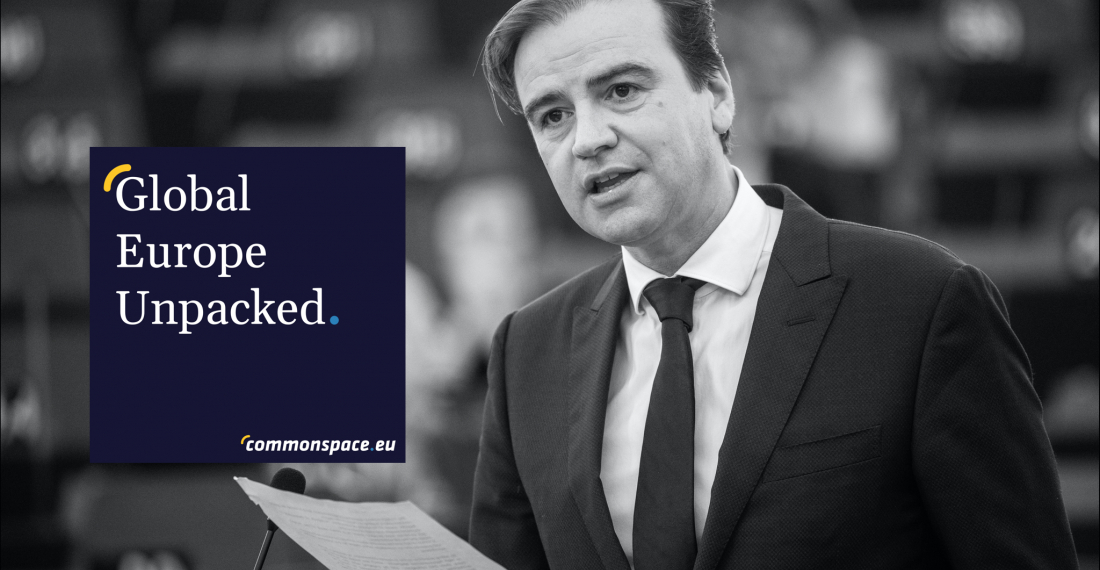"It is not a case of if but a case of when we will build that strong, more global power."
[The podcast is also available on all of the usual channels, including Apple Podcasts, Spotify and Google Podcasts]
Global Europe is a term often used to describe a geopolitically assertive European Union, representing the collective interests and values of its member-states with a single voice and strategy. It is an idea that is getting increasing traction among the foreign policy community and decision-makers in both Brussels and the European capitals. For most European citizens, however, it remains an abstract concept of no immediate relevance to their daily realities.
In the first episode of the Global Europe Unpacked podcast, I shine a spotlight on the ambition of a global Europe and speak to Malik Azmani MEP, head of the European delegation of the Volkspartij voor Vrijheid en Democratie (VVD) and First Vice-President of the Renew Europe group. We discuss:
- what the ambition for a global Europe means;
- European hard, soft and "smart" power and what geostrategic ambitions mean for the transatlantic relationship;
- global challenges in the EU's neighbourhood, such as Ukraine and Nagorno-Karabakh;
- current unanimity requirements for EU foreign and security policy making and the prospect of qualified majority voting; and
- why he and others believe that a global Europe is a necessary evolution.
The podcast can also be heard on Radio GIPA FM 94.3 in Tbilisi, Georgia.






